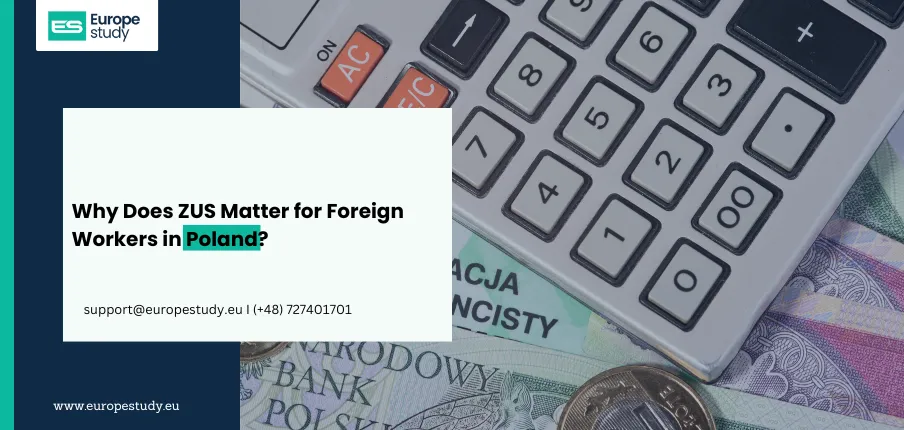
What’s the role of trade unions in Poland’s workforce?
When discussing the world of work in Poland, it’s impossible to ignore the role of trade unions. While their influence has evolved over the decades, trade unions still play a significant role in shaping the Polish labor market, advocating for workers' rights, and influencing labor law and policy. Whether you're a foreigner working in Poland, an HR professional, or just curious about how the labor system works, understanding trade unions in the Polish context is essential.
A Brief Historical Context
Poland has a deeply rooted history of labor activism. The most famous trade union in Poland — and arguably one of the most influential in the world — is Solidarity (Solidarność). Founded in 1980 in the Gdańsk Shipyard under the leadership of Lech Wałęsa, Solidarity was the first independent trade union in the Eastern Bloc and played a key role in the fall of communism in Central and Eastern Europe.
Since the transition to a market economy in the 1990s, the role of trade unions has shifted from political activism to workplace representation and advocacy.
The Legal Framework
Trade unions in Poland are regulated primarily by the Polish Labor Code and the Trade Union Act of 1991. Some key points include:
- Right to Organize: Employees have the right to form, join, and operate trade unions freely.
- Scope of Representation: Unions can represent both members and non-members in negotiations.
- Collective Bargaining: Unions can negotiate collective labor agreements (CBAs) with employers.
- Protection from Discrimination: Employees cannot be discriminated against for union involvement.
Union Landscape in Poland Today
Major Trade Union Federations:
- NSZZ “Solidarność” – Still one of the largest and most influential, especially in public sector institutions and traditional industries.
- OPZZ (All-Poland Alliance of Trade Unions) – Represents mostly left-leaning and public sector workers.
- Forum of Trade Unions (FZZ) – A smaller, independent union center.
Each of these federations comprises multiple sector-specific unions.
Sectors with Strong Union Presence:
- Mining and heavy industry
- Transportation (e.g., railways, airlines)
- Education
- Healthcare
- Public administration
In contrast, unions are less prevalent in the IT sector, startups, and foreign-owned private companies.
What Trade Unions Do in Practice
1. Collective Bargaining
Unions negotiate with employers over wages, bonuses, work conditions, vacation policies, and workplace safety standards. Collective bargaining agreements may apply company-wide or be limited to union members.
2. Worker Representation
In unionized workplaces, unions represent employees in disputes with employers. They may assist in grievance procedures, mediation, or even legal representation in labor courts.
3. Consultation and Oversight
In some cases, employers are legally obligated to consult with unions before implementing major changes, such as group layoffs, changes in working time systems, or restructuring.
4. Political Lobbying
Unions frequently engage in lobbying efforts to influence national labor policy, pension reforms, and minimum wage legislation.
5. Worker Education and Advocacy
Unions often provide training on worker rights, health and safety, and legal protections. They may also launch public campaigns to raise awareness of labor issues.
Challenges Facing Trade Unions in Poland
- Declining Membership: Union density in Poland has declined significantly since the 1990s. Estimates vary, but only about 10–15% of workers are unionized today.
- Limited Influence in Private Sector: Particularly in small businesses, startups, and foreign-owned companies, union presence is minimal.
- Perception Issues: Younger workers often view unions as outdated or ineffective, particularly in competitive industries where individual bargaining is common.
Recent Trends and Developments
- Platform Workers and Gig Economy: There is growing discussion about how to extend union protections to gig workers like food delivery couriers and ride-share drivers.
- Digital Organizing: Unions are experimenting with new tools to reach workers online, especially in light of remote work trends post-pandemic.
- Labor Protests: Unions in sectors like healthcare and education continue to organize strikes and protests to push for wage increases and better conditions.
Are Foreign Workers Protected by Unions?
Yes. Trade unions in Poland can represent foreign workers as long as they are legally employed. In recent years, some unions have begun offering multilingual support and legal assistance for migrant workers, especially those from Ukraine, Belarus, and other Eastern European countries.
Should You Join a Union in Poland?
This depends on your workplace, sector, and personal views. In larger public-sector institutions, joining a union can offer significant support and collective strength. In the private sector, especially in smaller or newer companies, unions may be less relevant or even absent altogether.
Still, if you're facing workplace issues — such as unpaid wages, unfair dismissal, or discrimination — reaching out to a trade union (or a labor lawyer) can be a valuable step.
Final Thoughts
Trade unions in Poland are deeply intertwined with the country’s history and still play a vital role in many industries today. While their influence has changed in the modern economy, they remain a key part of workplace advocacy, labor negotiations, and political activism.
Understanding how they operate — and where they’re strongest — is important for both Polish citizens and foreigners who want to work, live, and thrive in Poland.





